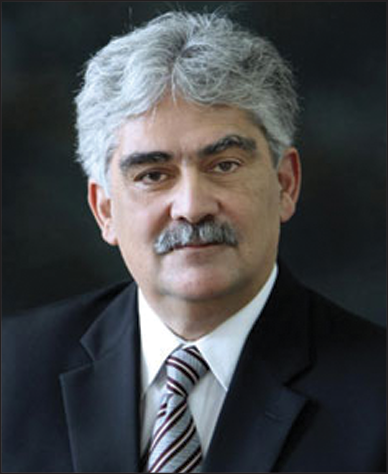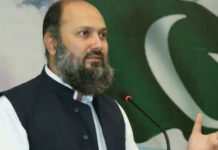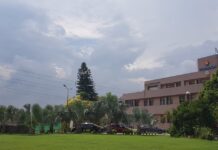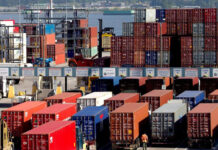By now, it is abundantly clear that the Pakistani economy is not working, at least not for the overwhelming majority of the people in the country, and perhaps not even for the politically well-connected rent-seeking elite for whom the entire economic structure has been distorted in the first place. What, then, is the way forward? The Imran Khan Administration’s economic team, led by Finance Minister Asad Umar, appear to be taking a long time in getting settled in and appear indecisive about what to do next. We at Profit thought we might try to help them along.
Profit contacted five of the top experts on the economy to get their version of what is the right thing to do to put the economy on the right track in the backdrop of falling exports and balance of payments crisis. All five have either directly worked in the government, or else been in a position to advise the government or key figures in the country’s ruling political parties. And four out of the five have doctoral degrees in economics or related disciplines.
These accounts were narrated individually to Taimoor Hassan. They are presented here, without comment from Profit’s usually opinionated editorial staff. [Editor’s Note: That seems harsh. True, but harsh.]
2For the Pakistani economy to triumph, we must develop our cities

We need to deregulate our cities to allow more construction and high-rise development
Dr Nadeemul Haque
Pakistan’s economic strategy started with the Harvard Advisory Group and Dr Mahboobul Haq. However, we never changed it, nor did it evolve. We are still stuck there. That was a very simple strategy. We were a new country. The international development world had just started. They wanted to mend and look after us like parents look after little babies. They created a model of which Dr. Mahboobul Haq was a part. The model included development through establishing infrastructure on borrowed money. They wanted to give us money as we were a low savings country. Sadly enough, the world has changed, and we are still pursuing the old model.
But while we are a resource constrained economy dependent on foreign aid, we borrow to postpone reform. We are also in love with vanity projects. Successive governments in Pakistan prefer external borrowing to finance ill-planned and unnecessarily expensive projects like Metro buses, Orange Line trains, Islamabad airport and an excessive expansion of universities.
Everywhere, cost-benefit analysis is carefully done and considered before projects are undertaken. In the past, this was done. Now politicians and civil servants realize projects are a gravy train and refuse to do any real cost-benefit analysis. Without a serious cost-benefit analysis, the Planning Commission is rendered useless. Projects now follow political expediencies. And that too on borrowed money. No wonder we repeatedly experience a balance of payments crisis and need the IMF.

It is not surprising that research, both inside the Planning Commission and in academia, has found that the returns on the PSDP are low and perhaps even negative.
Economics has moved on. Planning is not considered useful or doable. Developing industry at any cost or merely looking for dollars is considered old style “mercantilism.”
These old policy ideas have now been replaced with new thinking where growth is no longer considered to be arising merely from projects and industry. Instead, the economy grows when entrepreneurial and innovative activity thrives. Note an entrepreneur is not a man with money who got some license and cheap land and credit to set up an industry. An entrepreneur is a person who sets up a new business or businesses, taking on all financial risks without any help from the government. Do you ever see Bill Gates or Steve Jobs asking for government help?
The government should also stop acting like a father and tell people what to do. In a society, entrepreneurs, thinkers and innovators should be allowed to express themselves. In the Mahboobul Haq period, the role of the government was of a socialist which prompted the government to undertake excessive planning and control the markets strictly. But that model had failed even in the Ayub period. The role of the government is not to decide how to control the market: what should be bought and what should be sold, but to define the limits of the economy very clearly, formulating rules and policies that maintain a clean marketplace for the buyer and seller to interact.
Moreover, if the government knows where to invest it can make money doing so. We have seen the government unable to run a business. Why then do we think that the government knows where to invest?
The government should not provide direction and incentives without having the relevant knowledge. Without such knowledge, the government cannot decide which businesses should be run and which supported. If an industry is unable to stand on its feet, it is okay to let it die. Around the world, industries die! Bankruptcy is not such a bad thing. Why are we stuck with the 70-year-old industries that we keep alive through subsidies?
What then should the government do? The government should monitor the economy through research and analysis. Let the local businessmen devise a strategy according to the economic conditions prevailing. If allowed to operate freely, the forces of supply and demand will eventually bring everything to equilibrium, whether it is import demand or export supply. Businesses must manage exports and imports to maximize their profits. It is not the government’s job to export for them or to give them subsidies to do their work.
The government must stand ready to resolve disputes in a timely manner as they arise in business. A competent legal framework to facilitate economic transactions and coupled with an effective and efficient judicial system, will foster innovation and entrepreneurship to let the economy thrive and people to prosper.
We estimated in the Planning Commission Framework for Economic Growth that Pakistan’s youth bulge requires a growth rate of over 8% if the growing labor force is to be absorbed. In recent years because of a lack of reform our long run growth rate and productivity are both declining. Our growth rate now oscillates between 3 and 5% which is far below potential. I am surprised that finance ministers are claiming victory with growth rates at about 5%. Let us be clear that for Pakistan a growth rate of less than 4% is a recession. While anything less than 7% should be regarded as failure of policy. We should not accept any growth rate of less than 7% as satisfactory performance. Hold your finance ministers to a higher standard! They must give us a growth rate of 7% or accept their failure.
An important hub of growth which we overlook, is cities. Our cities have been overregulated to choke out investment. And so is the construction industry, which stimulates growth and revitalizes many other industries. Expensive land in the cities is being underutilized. Prime land is occupied by big houses instead of high-rise buildings, which have more economic value. When cities are dense and properly developed, entrepreneurship comes there inevitably.
If developed properly, like in the western economies, cities can add almost 4% of growth to the economy. Unfortunately, government bureaucracy is vested in keeping the unproductive and slow-growth urban sprawl alive. Cities are spreading at the cost of the environment and economic growth. Yet there is no debate or thinking on this subject.
I have been asking for the last 20 years why there are no tower cranes in Pakistan. Every country that is growing at a rapid rate has thousands of tower cranes in their cities. Is it not odd that in our cities which are some of the largest in the world, there are no tower cranes? This means that unlike the rest of the world we are not allowing tall building to be made. Why is it that we are so different from the world? Or is it that we are more stupid?
Analysts who are looking for rapid export expansion and point to the export performance of East Asia must also note that East Asian development happened not only with rapid increase in exports but also with rapid urbanization and high-rise development. Maybe the two – exports and high-rise development — are related in ways that we have not studied yet.
Whichever way you look at it, we need to deregulate our cities to allow more construction and high-rise development. To my mind this is a must for accelerating growth.
All this needs to be reinforced with civil service reform. As Max Weber pointed out, the civil service is the keeper of the rules, the maker and implementer of policy and regulation, and the monitor and evaluator of policy and programmes in all countries. It is the name given to many bodies of diverse skills many organizations, numerous work and reporting processes as well as a multiple checks and balances.
In Pakistan, it has become concentrated and monopolized by a group of generalists. It lacks skills and checks and balances and has no work processes or policymaking skills.
In most of the government, we have even lost the understanding of what a policy is. The policy is now at the whims of politicians. Frequent policy changes are bad for business. Policies such as tax policy should be very clear and defined for a long term, with no room for arbitrary changes. Moreover, no policy or legislation should be passed which the government is incapable of financing. Policies should be based on research and there should be monitoring reports on how the policy is working. That is essentially the work of the bureaucracy.
We are facing a crisis repeatedly for the last 40 years. The crisis in Pakistan’s economy is essentially because of excessive dependence on unnecessary loans for wasteful expenditures. Without reform for productivity, we can keep on this treadmill of a crisis. If we make a more thoughtful government, deregulate our cities and markets, stop trying to prop up tired old industries, develop new laws and justice system, we will clear the room for entrepreneurship and innovation. If we let our cities have the imagination to create all kinds of activities. The cities will create these activities themselves, without the government’s support, if they have the space to do it.
If we develop a modern civil service capable of midwifing a 21st-century market and city, we will generate large investment flows to generate the required 8% growth.
If we deregulate the market place so that for the ‘survival of the fittest’ and not coddling the aged vested interest, we will grow exports and industry needed to absorb our youth bulge.
Dr Nadeemul Haque is former Deputy Chairman of the Planning Commission and served for several decades as an economist at the International Monetary Fund.

























First step would be to ban all mainstream private media channels and end this 24 hour circus where anchors who also happen to be the most knowledgeable economic experts criticize each and every move by Govt. and make everything debatable and political just to boost their ratings at the expense of national interests.
This is because in order to fix Pakistan’s economy, tough steps like removing subsidies on gas etc, privatization of sick units like PIA, Steel Mills, banning useless imports and importantly establishing ruthless and quick accountability across the board for corrupt people and systems need to be undertaken. There will definitely be a public outcry fueled by political parties who would naturally oppose everything. But without the mainstream media, it won’t lead to societal issue and hence national interests would be better served if ‘paid’ media is kept at bay.
What a strange comment. Instead of banning the mainstream media, Maybe you should try switching off the channel instead?
You rightly point out some of the demons plaguing our economy and banning media is not an issue. If you restrict access of general populace to information/news than don’t you think you are creating and giving rise to societal issues?
@ Author: Great work and great insights!
However, inclusion of some experts who were involved in previous administrations and were part of creating the problem is strange in my view. Maybe some input from more experts would have countered this.
As far as fixing the economy goes, we as a nation should try to support our local startups. Look towards alums of incubators and accelerators, provide feedback and try to take the first step in creating jobs for others.
Thank you Profit for providing quality content.
I subscribe the views that media should be controlled and anchors be removed from their jobs .Anew and young and proper qualified can easily replace them. the two brothers zubair and Umer will play havoc wit economy. their only qualificationa are that are sons of a corrupt general and very ordinary graduates of IBA.
Mr Zubair .a so called management consultant failed to priotize OGDC,rehabilitate steel mills and PIA. An import officer in IBM at saudia arabia does not qualify to become Governer of Sind.Only through army connection he secured this job.Being a former IBA graduate I KNOW HE WAS C grader. similar is the story of Umer and their 3 rd brother at Faiasa bank
There is no magic light switch that can turn the economy on or off. Economic development is based on certain prerequisites. Foremost among these is long term administrative and economic stability. Investors do not to risk their money in countries where political parties stage ‘dharnas’ and public unrest to undermine elected governments. What they find in Pakistan is continuing political instability and amateurs in power who have very little experience or understanding of how a country functions in present-day setting.
Confrontation, meaningless lectures and sermons by people who have no track record is not a substitute for well conceived and properly executed policies. What will help is unity, not division and people with experience who understand government, not well-meaning amateurs and ignorant political mavericks. There is not much time before patience runs out and disillusionment sets in. The
government will lose credibility destroying any hopes of a turn around with it.
K. Hussan Zia.
Pakistan’s Military has essentially APPOINTED their lackey Taliban Khan as Pakistan’s prime minister.
The begging habit of Pakistan’s military and taking U-Turns on promises made and back stabbing the very benefactor (U.S.) are other qualities of Pakistan Military that Taliban Khan inherits !!
There is no future for Pakistan under a bafoon like Taliban Khan.
But we Chinese are more than happy because we PRE-EMPTED and LIQUIDATED Islamic Radical Khan’s wish to re-assess and re-audit CPEC projects that we started under thoughtful and pragmatic Nawaz Sharif Government.
Now, no body can even dare to speak (or even think in their mind) of opposing any Chinese move in Pakistan !!
Slave ISLAMIC superstitious backward beggar societies like Pakistan have NO CHOICE other than to surrender and be subjugated in front of ATHEIST and SOCIALIST Societies like CHINA !!
Hilarious analysis. This in fact shows the mentality of the stupid and arrogant Chinese population who arrive in Pakistan thinking as if they own them. In their own country, they can’t even raise a word against their dictator rulers and here these ugly gross shabby sorry classless idiots come and think they own everything here.
The huge debt accumulated due to CPEC projects by Pakistan is what is causing us to bear Chinese tantrums. No wonder they like Nawaz Sharif so much, who put Pakistan in so much debt and misery while taking kickbacks from the equally corrupt Chinese. Pakistan has a future if it focuses on to be self sufficient rather than relying on China.
It Is Obvious That You Are Just An Indian Troll
indian dog spotted…. using chinese name ,, hahahahaha can not see pak china frndship
Comments are closed.